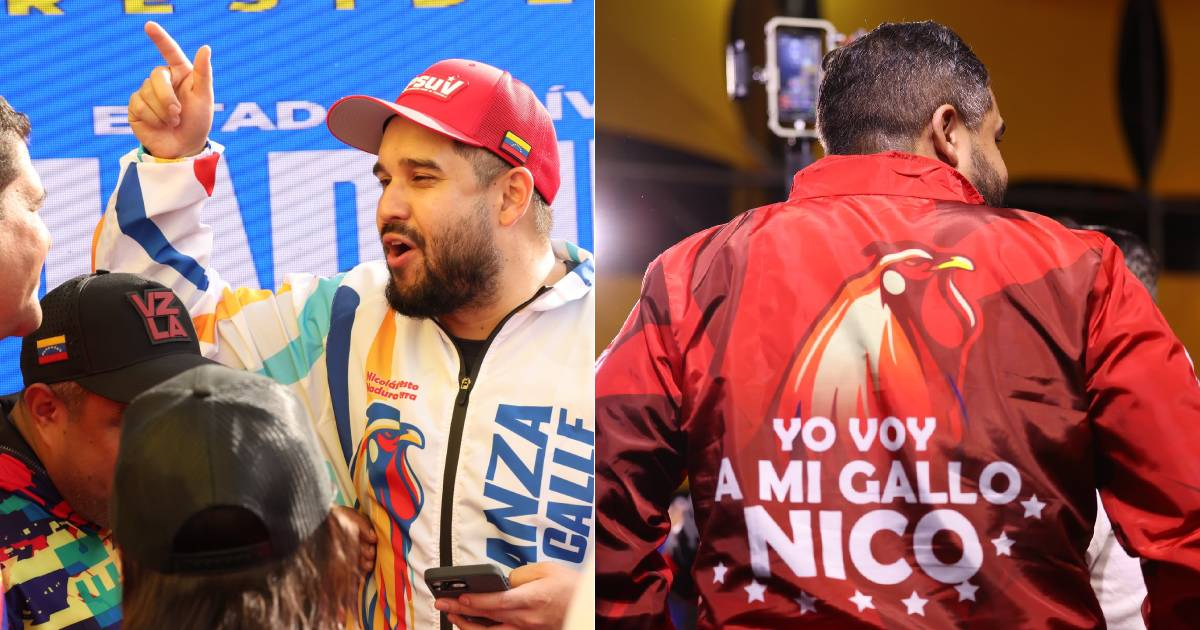
"If Edmundo wins, we hand over and we will be in opposition, done," said Nicolás Maduro Guerra, son of the president of Venezuela and deputy of the state of La Guaira in the National Assembly for the ruling party PSUV, in a conversation where he seemed to easily settle on a formula.
Venezuela, controlled by Nicolás Maduro, announced presidential elections for next July 28, evoking the "mega elections" of the year 2000.
With this call, the president seeks his second re-election for six more years, despite declining popularity.
"We are going to win, I confirm it to you," said the only son of the president, reaffirming a confidence in the polls that they acknowledge.
In the elections this Sunday, July 28, more than 21 million citizens are called to vote both in the country and abroad. President Maduro, the candidate for the ruling party, appears on 13 ballots representing different political organizations that support his candidacy.
However, only 69,211 Venezuelans abroad are eligible to vote, which represents a small fraction of the approximately eight million who have emigrated, according to data from the UN. Government obstacles are the main causes of this situation.
The opponent with the greatest chances is Edmundo González Urrutia, representative of the majority opposition.
This opposition candidate is backed by his distinguished professional career, which began in the Ministry of Foreign Affairs of Venezuela. He served as Ambassador to Algeria (1991-1993) and Argentina (1998-2002). Despite this, he was unknown to most Venezuelans until recently.
The support of opposition leader María Corina Machado strengthened his candidacy and has made him a viable rival who could put an end to more than two decades of chavismo.
The son of the current president insisted to El País that when Chavismo has not won, it has always accepted it. "History has shown that on the day we do not win, we acknowledge it. Always, every election, each one."
"I believe that on July 29, the country must wake up at peace first. Whatever the outcome, and I say this with full responsibility, whatever the outcome. We are counting on winning," stated Maduro Guerra.
Chavismo has governed Venezuela for the last 25 years. First, with the democratic victory of Hugo Chávez in 1999, and then, after his death in 2013, his successor, Maduro, won the presidency by a narrow margin and adopted more authoritarian policies.
This election presents the greatest possibilities for an opposition candidate, although Maduro has issued several threats in case he does not achieve victory.
Last February, he stated that in this presidential election his team is going to win "by fair means or foul."
His maneuvers prevented former deputy María Corina Machado, the main opposition figure, from running as a candidate due to a 15-year ban on holding public office imposed by the Comptroller's Office in 2015 and reaffirmed by the Supreme Court in January.
While in these dates, prior to the electoral day, there have been several bans for observers who have expressed positions inconvenient for the regime to step down in their capacity as observers.
The president of Brazil, Luiz Inácio Lula da Silva, revealed a few days ago that he was scared to hear Maduro say that if he loses the elections next Sunday in Venezuela, there will be "a bloodbath" in his country.
The Brazilian president said that he spoke twice with Maduro and warned him that "if he wants to contribute to solving the problem of Venezuela's growth and the return of those who left, he must respect the democratic process."
Lula clarified that in democracy, "the one who loses takes a bath of votes, not a bath of blood," and that "Maduro has to learn that when one wins, they stay, and when they lose, they leave and prepare for other elections."
In the opinion of the leader of the Workers' Party, the elections on Sunday will be "the only opportunity" for Venezuela to "return to normalcy" and for the country to reintegrate into the regional and international community.
What do you think?
COMMENTFiled under: